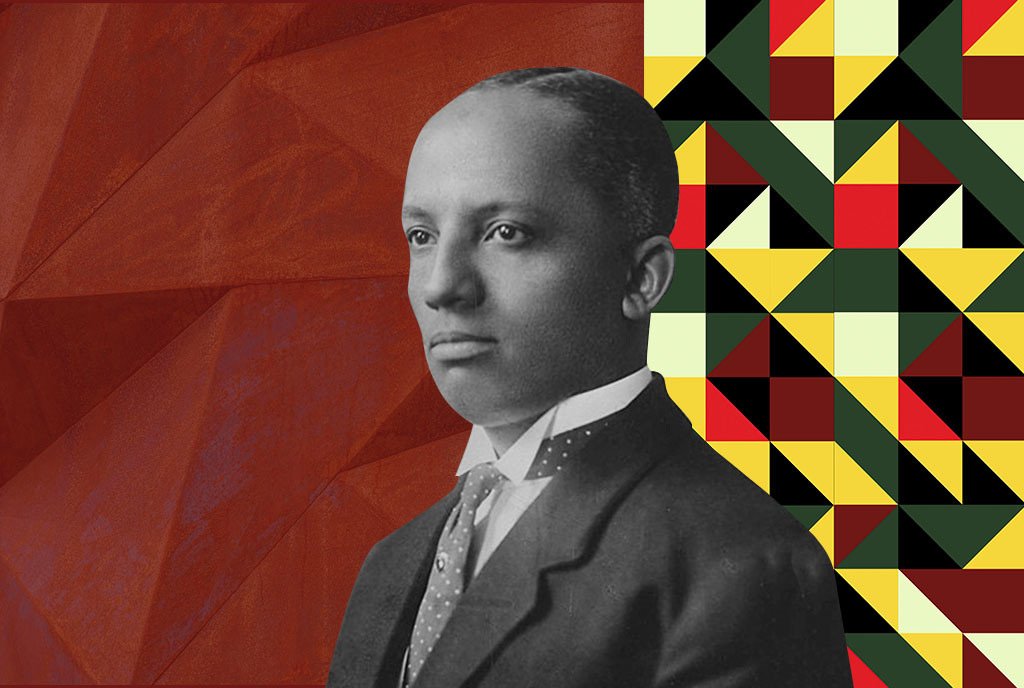
In 1976, President Gerald Ford formally acknowledged Black Historical past Month as he referred to as upon the general public to “seize the chance to honor the too-often uncared for accomplishments of Black People in each space of endeavor all through our historical past.” Since then, each United States president has acknowledged the month.
As youngsters, many people would rejoice Black Historical past Month at school by studying about folks like Martin Luther King, Jr. or Rosa Parks. If we had been fortunate, we’d even be taught about folks like Ella Baker, Fannie Lou Hamer, or Pauli Murray. Whereas we celebrated Black historical past, many people by no means heard a lot concerning the father of Black Historical past Month, Carter G. Woodson.
Woodson was born in 1875, 10 years after the tip of chattel slavery in America. As a descendant of enslaved folks, he believed youthful generations wanted to know their historical past and what Black folks in America had overcome. As he wrote in his seminal 1933 guide, The Mis-Schooling of the Negro, Woodson believed that it was notably essential that Black folks be the academics of their very own historical past and never be reliant on those that had oppressed them.
After turning into the second Black particular person in America to earn a PhD from Harvard College, Woodson made it his mission to protect the examine of Black historical past and mentor youthful Black students. His dwelling in Washington, DC, turned the headquarters of the Affiliation for the Examine of Negro Life and Historical past, which is now referred to as the Affiliation for the Examine of African American Life and Historical past (ASALH), and the place the primary Negro Historical past Week was held in 1926.
“We should always emphasize not Negro Historical past however the Negro in Historical past. What we want is just not a historical past of chosen races or nations, however the historical past of the world void of nationwide bias, race hatred and spiritual prejudice.”
Woodson deliberately selected February to rejoice Black historical past as a result of he needed it to coincide with the birthdays of Frederick Douglass and Abraham Lincoln. After Lincoln’s assassination in 1865, Black communities had taken to celebrating the previous president’s birthday, and because the late Nineties, Black communities had additionally celebrated Douglass. Woodson needed to construct on this custom, and he additionally needed to increase it from being about two males to being concerning the strides of the Black race as a complete.
Woodson believed that historical past was made by folks as a collective and never simply particular person actors, so whereas he admired each Douglass and Lincoln, he urged everybody to go deeper and mirror on Black folks’s broader position within the Civil Struggle—the way it took a whole lot and 1000’s of Black troopers and sailors to combat for his or her freedom and safe their very own future.
Join our free newsletters
Subscribe to NPQ’s newsletters to have our prime tales delivered on to your inbox.
By signing up, you comply with our privateness coverage and phrases of use, and to obtain messages from NPQ and our companions.
Past Black Historical past Month
[Woodson] thought that…People as a complete would study Black historical past each day….Now we have not but reached that time.
Talking of the aim of the week on the time, Woodson mentioned, “It isn’t a lot a Negro Historical past Week as it’s a Historical past Week. We should always emphasize not Negro Historical past however the Negro in Historical past. What we want is just not a historical past of chosen races or nations, however the historical past of the world void of nationwide bias, race hatred and spiritual prejudice.”
When Woodson unveiled Negro Historical past Week in 1926, there was an unlimited response. To satisfy the demand, Woodson and ASALH offered examine supplies to varsities throughout the nation. ASALH additionally fashioned branches to assist meet the wants of native areas. In 1937, on the urging of educator and activist Mary McLeod Bethune, Woodson created the Negro Historical past Bulletin, a month-to-month publication despatched out to highschool academics to offer lesson plan concepts on Black historical past. The bulletin nonetheless exists at present because the Black Historical past Bulletin.
Woodson needed college students to study concerning the info introduced within the bulletin all year long. He knew educating Black historical past was obligatory, but it surely couldn’t be restricted to per week. He thought that the weekly celebrations of Black historical past would ultimately come to an finish, and that Black folks—and People as a complete—would study Black historical past each day. Right now, with ongoing assaults towards the educating of a truthful historical past in colleges, now we have not but reached that time.
It’s important for us to recollect the position that Black folks have performed in shaping historical past—not simply Black historical past, however American historical past.
Woodson died in 1950. On the time of his dying, the Civil Rights Motion had not but been born. Rosa Parks had not but refused to surrender her seat on a Montgomery bus, Martin Luther King, Jr. had not but been arrested for civil disobedience, Fannie Lou Hamer had not but proclaimed that she was “sick and bored with being sick and drained” and many people had not but reaped the liberty we take pleasure in at present due to the work of many of those leaders.
Now greater than ever, as Woodson urged us to do, it’s important for us to recollect the position that Black folks have performed in shaping historical past—not simply Black historical past, however American historical past. As we rejoice this month, it is very important acknowledge this historical past all 12 months lengthy.